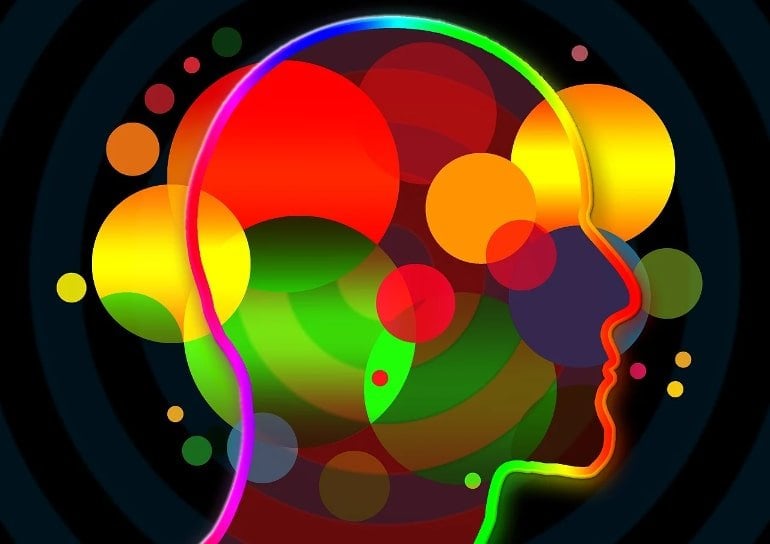
Read This On Our Main Website: https://psoec.com/coping-with-schizophrenia-when-the-emotions-can-be-too-much/?feed_id=1871&_unique_id=61b173db1b4ce
[ad_1]
Summary: People with schizophrenia have problem coping with low-level detrimental feelings when the detrimental feelings improve. People with schizophrenia use fewer coping methods when they're confused than folks with out the situation, which escalates their detrimental feelings.
Source: University of Georgia
An individual with schizophrenia usually experiences extra detrimental feelings and has extra stressors than the typical.
A brand new research by psychologists on the University of Georgia revealed a shocking discovering that might assist these fighting the illness: whereas folks with schizophrenia are inclined to take care of low ranges of detrimental feelings, when these detrimental feelings improve, they battle with it .
People regulate their feelings with a purpose to transfer from a sense to a most well-liked state, be it a return to calm, a motion in the direction of happiness, not feeling fairly as offended, or utilizing a totally completely different emotion.
Using scientific knowledge from outpatients with recognized psychotic issues and a management group, the research targeted on the identification section of emotion regulation and the variations within the course of. The researchers used a scale of 1 to 10 for detrimental feelings, with 10 representing the best stage of tension or emotional stress.
"The idea of identification in a healthy person works as expected: if negative emotions increase, they are more likely to manage," mentioned Ian Raugh, PhD scholar and lead writer of the brand new research. “At decrease ranges, say 1 or 2, you might be unlikely to do something to vary it. But when the extent of detrimental feelings will increase, it's more likely that a wholesome particular person will make an effort to vary their emotions. "
However, the researchers found that emotion regulation does not increase in the same way in people with schizophrenia.
At higher levels of stress, a healthy person will work to control their emotions, while someone with schizophrenia will not or cannot.
“They're actually less likely. That's really the anomaly that people with schizophrenia don't seem to try as hard to manage their emotions when their emotions are really high, "he mentioned.
Raugh mentioned that individuals with schizophrenia are much less possible to make use of coping methods or emotion regulation to really feel higher. And when conditions escalate in a detrimental path, they turn into much less more likely to attempt to change the state of affairs for the higher.
“The phrases we use in psychology are 'discovered helplessness' or 'defeatist beliefs' the place folks assume, 'Oh, it will not work even when I strive, why trouble,' which we do Depression is widespread. And this side most likely results in fewer makes an attempt at greater ranges. "

Researchers have additionally weighed the likelihood that individuals with schizophrenia are merely exhausted. Since additionally they regulate when the detrimental feelings are low, they could expend their efforts when it's least efficient or after they get the slightest profit from it. So when your feelings are actually intense, it is so much more durable.
"So much has to do with the truth that they do not regulate that a lot when it was most useful," said Raugh. "Our future research will attempt to perceive extra about why they'd regulate much less at greater ranges."
"Our subsequent purpose is to find out if the identical abnormality is current in adolescents in danger for schizophrenia," said Gregory Strauss, associate professor of psychology, director of the UGA Clinical Affective Neuroscience Laboratory and lead author on the study. “Increased stress reactivity has long been considered a major risk factor, but these results suggest that the regulation of this stress response must also be considered. If the same problems persist years before the onset of illness, bespoke psychological treatments can show promise in preventing schizophrenia. "
About this emotional regulation and schizophrenia analysis information
Author: Alan Flurry
Source: University of Georgia
Contact: Alan Flurry - University of Georgia
Image: The image is within the public area
Original analysis: Closed entry.
"Deconstruction of emotion regulation in schizophrenia: the nature and consequences of abnormalities in the identification phase“By Ian M. Raugh et al. European Archives of Psychiatry and Clinical Neuroscience
abstract
See additionally

Deconstruction of emotion regulation in schizophrenia: the character and penalties of abnormalities within the identification section
Existing proof means that emotion regulation in schizophrenia is irregular and related to undesirable scientific outcomes. However, this literature is especially based mostly on self-assessment of traits and doesn't present any indications as to which phases of emotion regulation (identification, choice, implementation) are impaired.
The present research focused on the dedication of the kind of abnormalities within the identification section via an ecological instantaneous evaluation (EMA). Participants had been clinically steady outpatients with schizophrenia (SZ; n= 48) and wholesome controls (CN; n= 52) who've accomplished 6 days of EMA. The EMA surveys rated emotional experiences, emotion regulation, and signs.
The outcomes confirmed that SZ recognized the necessity for extra regulation than CN. Specifically, the SZ confirmed an inefficient threshold for recognizing the necessity for regulation, in order that they regulated an excessive amount of when the detrimental have an effect on was low and too little when the detrimental have an effect on was sturdy.
The exertion of emotion regulation was additionally inefficient, in order that the exertion was too excessive within the case of low detrimental have an effect on and too low within the case of excessive detrimental have an effect on in SZ. These anomalies on the identification stage additionally confirmed completely different associations with optimistic and detrimental signs. The outcomes recommend that anomalies within the identification stage could symbolize a bottleneck that strikes ahead and impacts subsequent levels of emotion regulation in SZ which might be critically associated to the signs.
Targeting the psychological processes underlying these identification anomalies may provide a brand new technique of treating optimistic and detrimental signs in schizophrenia.
[ad_2]
Read This On Our Main Website: https://psoec.com/coping-with-schizophrenia-when-the-emotions-can-be-too-much/?feed_id=1871&_unique_id=61b173db1b4ce

Comments
Post a Comment